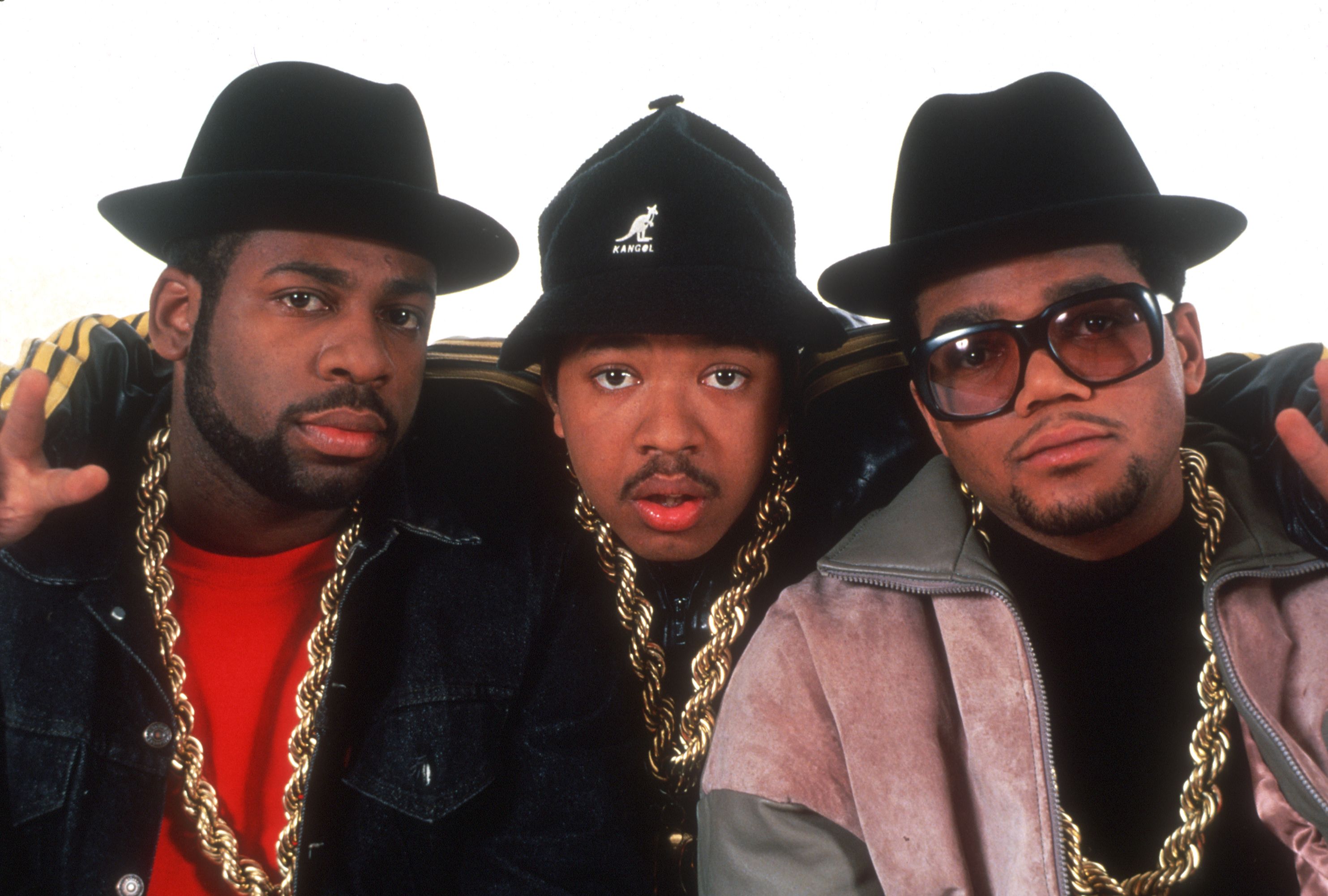Famous 1980s Musicians That Eventually Went Poor

via Fernando Edruhpower / Youtube
No matter how famous you are, going broke can still happen—and it happens more often than you’d think. We’ve seen athletes blow through fortunes, actors go bankrupt, and even billionaires lose everything. Musicians? They’re no exception. A surprising number of bands and solo artists who rose to stardom in the 1980s eventually found themselves staring at empty bank accounts, despite years of recording hits and packing stadiums.
Why does it happen? The reasons vary. Some spent like the money would never run out, others were taken advantage of by people they trusted, and a few faced legal trouble that drained their funds. The aftermath also differs—some managed to bounce back, rebuilding their wealth or finding financial peace. Others just got by. And sadly, a few never recovered at all.
Of course, “broke” looks different when someone once had millions. But the fall from rock star riches to financial ruin can still hit hard. Here are some 1980s music legends who went from topping the charts to hitting rock bottom.
La Toya Jackson
La Toya Jackson may not have reached the heights of her famous siblings, but she gave music stardom a solid shot. She kicked off her solo career with a debut album in 1980 and released five more by the end of the decade. Unfortunately, none of them made much of a splash on the charts. Her most notable music credit? Singing background vocals on her brother Michael’s legendary Thriller album.
Still, the Jackson name carried weight, and promoters hoped it would draw crowds. In 1992, La Toya landed a six-month residency at the Moulin Rouge in Paris. “People tend to think of us as old-fashioned. That is why you have to try experiments like La Toya Jackson. You have to try to innovate,” said artistic director Jean Miguel to The New York Times. But her show failed to impress critics, even with her husband/manager hyping her as the next Josephine Baker and planting rumors that Michael might show up.
Then, she abruptly quit. “She stopped performing after a few days, after an investment of more than $1 million,” Moulin Rouge lawyer Francois Chateau told Deseret News. In 1995, La Toya filed for bankruptcy, claiming she had under $50,000 in assets.

Dee Snider
Dee Snider hit it big in the 1980s as the face of Twisted Sister. The band landed six albums on the Billboard 200 and had three singles chart on the Billboard Hot 100—including their rebellious anthem “We’re Not Gonna Take It,” which peaked at No. 21. But once the group split, Snider’s fortune vanished—twice.
Trying to bounce back, he launched a new band called Desperado, but things quickly fell apart. Talking to Ultimate Classic Rock, Snider shared just how rough it got: “All the while, my financial situation — which had been cleared up less than a year earlier — was quickly eroding. … I’d been supporting … the rest of Desperado, and all the ancillary expenses (housing, equipment, plane flights, per diems, etc.) since the end of 1987. As we prepared to head into the studio to record, almost two years later, I was already back in debt. The huge advance … for the first album wasn’t enough to save me.”
After Desperado’s quick flop, Snider found himself at rock bottom. “Double bankruptcy, my career collapsed,” he told Fox News Digital. “I was riding a bicycle to a desk job, answering phones. I was married, had three kids. You know, things just went incredibly south.”

Cyndi Lauper
Cyndi Lauper may have been one of the biggest pop stars of the 1980s—with five singles hitting the Top 5 on the Billboard Hot 100, including two No. 1 hits—but her rise to fame wasn’t exactly smooth. Before her solo career took off, Lauper was the lead singer of a band called Blue Angel. Their only album flopped, and things quickly turned into a legal nightmare. The band’s manager, Steve Massarsky, sued them for $80,000 and tried to keep control of their music. With no money and no hits to her name yet, Lauper had no choice but to file for bankruptcy.
Luckily, her luck turned. Lauper told Rolling Stone that the judge ultimately ruled in her favor, even declaring, “Let the canary sing!”—a line that stuck with her and later became the title of her 2023 documentary. Once the court battle was behind her, she released her breakout hit “Girls Just Wanna Have Fun” and never looked back.
Unfortunately, financial trouble resurfaced for the family in 2025, when Lauper’s son declared bankruptcy while trying to avoid a judgment tied to a sexual assault accusation.

John Oates
John Oates, the famously mustachioed half of Hall & Oates, helped deliver five No. 1 hits in the 1980s—but that success didn’t protect him from financial disaster. Despite their chart-topping fame, Oates was stunned when his accountant broke the news: he was completely broke. The shock was so intense, he thought he was having a heart attack, only to realize it was a full-blown panic attack.
In his autobiography (via People), Oates shared how things spiraled. “Daryl [Hall] and I were always isolated from all that. In a sense, the situation was not dissimilar to that of a dysfunctional family. We were the kids, encouraged to enjoy the wild, crazy, protracted-adolescence life of a rock star. You know … run around the world, get laid, bask in the spotlight, and buy a lot of s***. Let Daddy take care of the important stuff.” “Daddy,” meaning their team, didn’t steal from them—but they didn’t exactly give a reality check either. “We weren’t cheated; we were seduced,” he said.
Though Oates recovered, money trouble resurfaced in 2023 when he tried to sell his share of the duo’s music rights—sparking a legal battle with Hall, who wasn’t thrilled with the move.

Natalie Cole
Natalie Cole may have been born into music royalty as the daughter of Nat King Cole, but she proved she had talent of her own. After breaking out in the ’70s, she kept her momentum going through the ’80s with eight songs on the Billboard Hot 100, including the Top 5 hit “Pink Cadillac,” and six albums landing on the Billboard 200. But behind the scenes, Cole was struggling—with addiction and money.
Her drug use got so serious that her mother stepped in and filed for conservatorship. In an interview with the LA Times, Cole recalled the moment: “I remember hearing my mother on the radio when she came out of the courthouse. She said, ‘My daughter has been under great strain and so forth.’ I was thinking, ‘Poor mom. She’s trying to uphold the family name.’ That was a hard thing for her to do, but there was no one else I could turn to.”
The move was meant to protect both Cole’s health and her finances. “I wasn’t a vegetable by any means,” she admitted, “but I just wasn’t able to take care of things in the way they should have been. I was negligent about a lot of things. … I was spending totally too much money.” Thankfully, after two stints in rehab, Cole got clean and returned to music.

Billy Joel
Billy Joel was one of the biggest hitmakers of the ’80s, scoring three No. 1 singles on the Billboard Hot 100 during that decade alone. But while his music career was on fire, his finances were falling apart behind the scenes. Joel discovered he had lost nearly everything, thanks to years of financial mismanagement by his former manager—and former brother-in-law—Frank Weber.
Looking back, Joel told The New York Times Magazine that part of the problem was his own attitude: “I always had this sense that, okay, I’m an artist and I shouldn’t have to be concerned about something as banal as money, which is baloney. … I didn’t pay any attention to it, and I trusted other people, and I got screwed.”
An audit revealed he was out about $30 million. “I never went without a meal. I just didn’t have the money I was supposed to have,” Joel explained. “There was a rumor that I filed for bankruptcy — that never happened, either.”
He sued Weber for $90 million but only recovered around $8 million after an out-of-court settlement—far less than what was lost.

Michael Jackson
You’d think Michael Jackson—global superstar, hitmaker across decades, and the man behind Thriller, the best-selling album of all time—would have been set for life. But when the King of Pop died in 2009 at just 50 years old, he was drowning in debt. Despite his massive success, it was later revealed that Jackson owed around $500 million at the time of his death.
Leading up to his passing, Jackson was preparing for a massive comeback tour. Knowing now how bad his financial situation was, the pressure to pull it off must have been intense. During a 2013 wrongful death trial brought by his estate against his former doctor, Jackson’s accountant testified just how dire things had become. According to the LA Times, he said, “consistently, his largest expenditure was interest expense. He spent a ton of money on interest,” thanks in part to huge spending on jewelry and maintaining the costly Neverland Ranch.
A court filing later confirmed it, with The Guardian reporting Jackson’s estate was buried in “debt and creditors’ claims,” much of it carrying high interest or already in default. On top of that, his estate had to pay $40 million to the tour’s promoter after the show was canceled.

Meat Loaf
Meat Loaf, born Marvin Lee Aday, shot to fame with his 1977 mega-hit album Bat Out of Hell and carried that success into the early ’80s. But behind the scenes, things were falling apart. Despite having two albums and a hit single chart in the 1980s, Meat Loaf found himself in serious financial trouble—caught in messy legal battles with his former manager and record label that ended up wiping him out.
“I ended up bankrupt,” he told the LA Times. “I lost my house and everything — even the publishing rights to my songs, which the bankruptcy court took away. But I’m not the first artist who has ever been screwed. It happens all the time.” He suspected his label was underreporting Bat Out of Hell sales to avoid paying him proper royalties. “They didn’t mind making a ton of money on my album. Is it too much to ask for them to pay what they owe me?”
Still battling for royalties well into the ’90s, Meat Loaf told The Guardian, “There’s not an artist alive, or will ever be alive, that has ever been paid what they are owed… Be prepared — you won’t get all your money.”

Chaka Khan
Chaka Khan has long been praised for her talent—and her business smarts. Back in 1985, she told Jet magazine, “I keep in touch with my accountant. I speak to my manager daily. You have to have a certain business sense.” But while she stayed on top of her money and career, it turns out legal troubles were a different story.
Khan was warned early on about how rough the business could be. When she tried to leave a contract with Curtis Mayfield’s record label in the 1970s, he sued her for earnings she’d made with another label. When she called to confront him, Mayfield coolly replied, “Have you ever been sued before?” She said no. “Well,” he said, “hang in there. You’ll be sued a lot. It’s cold out there” (via The Macon News).
He wasn’t wrong. Over the years, Khan’s been hit with multiple lawsuits—costing her millions in legal fees and settlements. These included a landlord dispute over a dog attack, a $5,000 small claims case from a concert production company, and a heartbreaking $1.3 million wrongful death suit after her son shot and killed his friend in her home.

Run-D.M.C.
In the 1980s, Run-D.M.C. broke barriers for hip-hop—scoring the first platinum album for a rap group and even landing on the cover of Rolling Stone. So when they filed for bankruptcy in 1993, fans were shocked. The group had already taken their label to court in 1988 over royalties and contract issues, but things didn’t get easier after that. While the label claimed the bankruptcy move was just a strategy to ditch their contract, the group insisted it was real—they were broke.
Though they did manage to secure a better contract in the end, the legal fight stalled their momentum. Their next album, originally set for release during the dispute, was delayed by over a year. By the time it dropped, it felt outdated and didn’t perform well, even though the group had once been proud of it.
Run-D.M.C.’s journey ended tragically in 2002 with the murder of Jam Master Jay. Sadly, his finances were also struggling. “We’re not going to discuss his personal finances in detail,” Run told Rolling Stone, “but as a family, we’re going to make sure right there is no debt… [His widow] Terri [won’t] go through any insecurity.”













